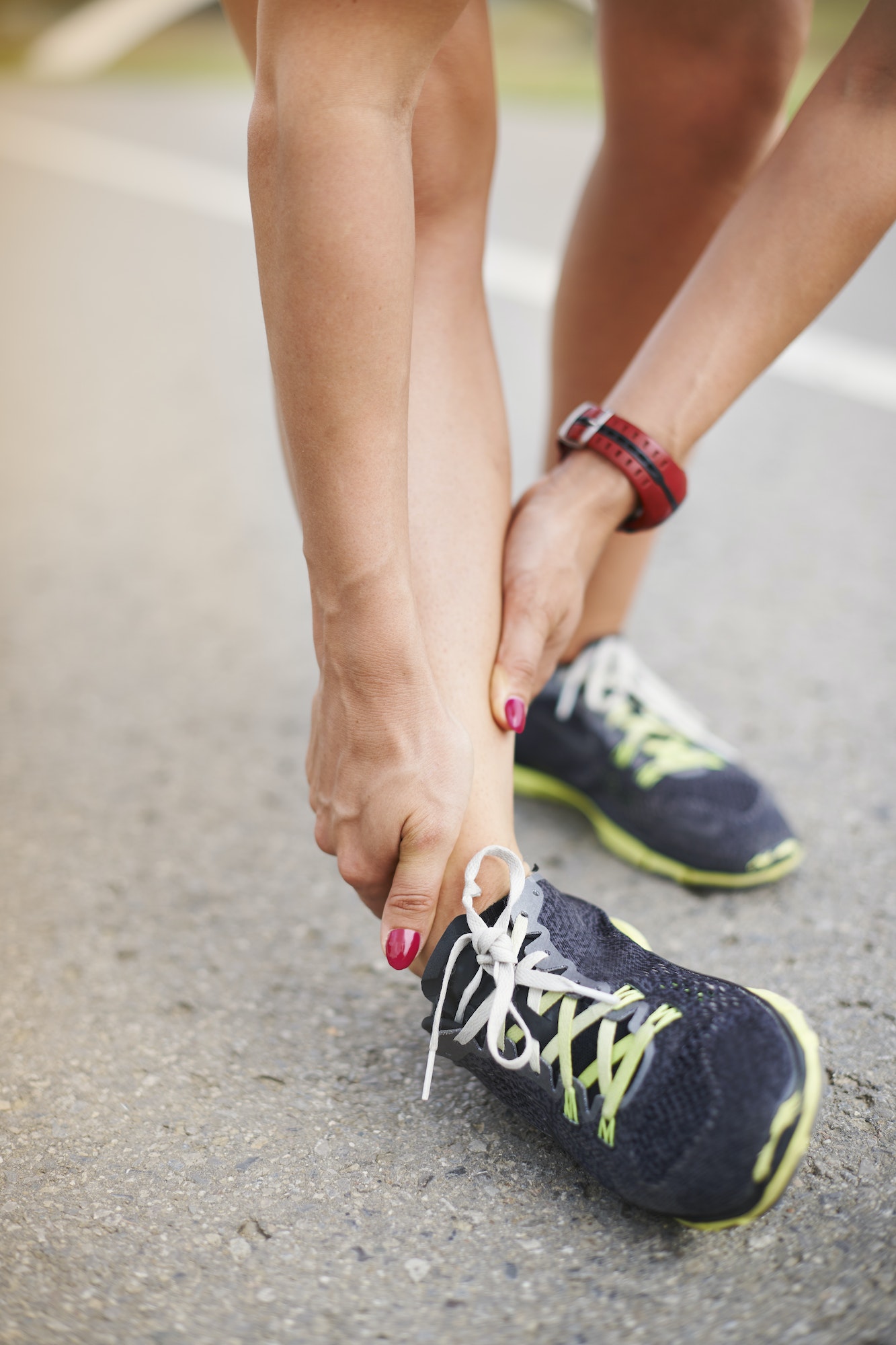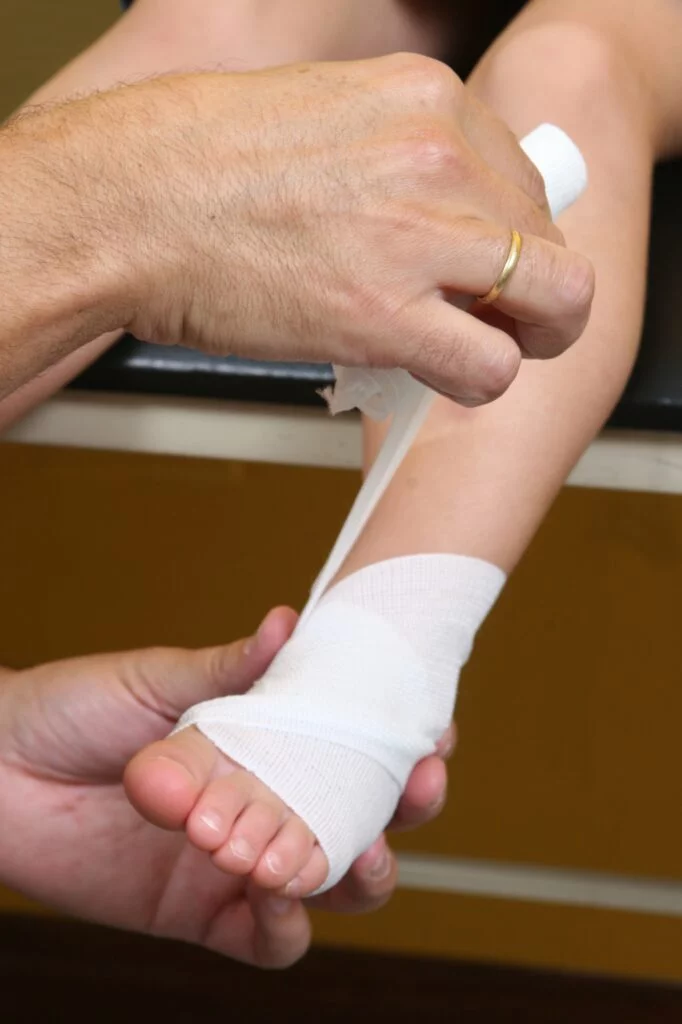Table of Contents
Introduction - Diabetic Foot Care
Diabetes is a disease where the body cannot manufacture or properly use insulin. The body then is unable to convert sugars and starches into energy, leaving an elevated amount of blood sugar. Too much glucose in the bloodstream can damage the feet, heart, kidney, eyes and nerves.
Diabetes can be managed with medical care, exercise and the correct diet to avoid complications.
Neuropathy, or nerve damage, results from too much blood sugar. With neuropathy, feeling is reduced in the feet, so any damage such as a cut or scrape can worsen. Because diabetes also causes poor circulation, the healing blood cannot reach the wound, resulting in an infection and a non-healing wound.
What Is Podiatry?
Podiatric medicine focuses on diagnosing, treating, and preventing foot and ankle problems, such as those that arise due to complications associated with diabetes. Your podiatrist (doctor of podiatric medicine) is highly trained through years of study and clinical practice, including a bachelor’s degree program and four years of podiatric medical school. Podiatrists may also have one or more years of residency training, studying other aspects of foot care and surgery. Podiatrists continue to stay informed about the latest research and developments in the field. In treating your feet, your podiatrist may also work with your other health care providers to give you appropriate and comprehensive care.
What Is Diabetes?
How Diabetes Affects the Feet
Diabetes may affect the feet in a number of ways, so diabetics should pay close attention to any changes or symptoms such as loss of feeling in the feet, any change in the shape of the feet, or chronic ulcers or sores on the feet. If any of these symptoms are noticed, a foot screening is in order without delay. Diabetes-related nerve damage may lesson a person’s ability to feel pain in the feet, meaning that small problems go unnoticed and develop into big problems.
In addition to checking their feet daily, people with diabetes should see a podiatrist twice a year, and contact a health care provider immediately if they see or feel any changes in their feet such as redness, swollen areas, or calluses. Letting foot problems such as these go unattended may lead to lower-extremity amputations. In the United States today, approximately 120,000 non-traumatic amputations are performed each year. As many as 5-15% of people living with diabetes will be subject to a lower-extremity amputation; 50% of those who have a major amputation will die within one year of the procedure.
Diabetes - Foot Symptoms
- Swelling
- Numbness
- Leg pain
- Skin color changes
- Slow-healing sores on the feet
- Fungal toenails
- Calluses or corns that bleed
Foot Care for Those With Diabetes
Foot care may be an area of extra concern for diabetics, but with vigilant care at home and at the podiatrist office, diabetics may maintain the health of their feet.
Here are good guidelines to help avoid serious foot problems:
- Check your feet daily. Look for anything unusual and inspect the bottom of your feet too. Call your foot doctor if you notice anything suspicious.
- Wash feet every day in warm, soapy water and dry thoroughly especially between the toes.
- Moisturize feet with a rich, emollient lotion or cream to keep skin supple.
- When trimming the toenails, cut them straight across to avoid an ingrown nail.
- Visit your podiatrist to treat corns or calluses – never cut them yourself.
- Change shoes and socks every day, and put on clean, dry socks when they become damp.
- Consider wearing socks made for those with diabetes. These have loose tops and extra cushioning, with fiber that wicks moisture away from the skin.
- If your feet are cold at night, wear socks. Avoid using a heating pad.
- Keep feet warm and dry in all types of weather.
- Avoid going barefoot to protect your feet.
- Keep your blood sugar levels in control.
Importantly, visit your podiatrist regularly for a complete foot exam.
A Podiatrist's Role
In addition to daily visual foot inspections and immediate professional podiatric attention to any problems, regular, professional foot exams are very important for every person with diabetes. A podiatrist is trained to detect any signs of potential complications that you may not notice. Having a podiatrist cut your nails will keep them well-groomed while minimizing the chances for infection.
A podiatrist plays an important role on a patient’s diabetes management team due to the frequency of diabetic foot-related complications. Good foot care and frequent visits to the podiatrist are keys in preventing amputations.
Early recognition of problems such as an ulcer, along with regular foot screenings by a podiatrist, can help reduce the risk of lower limb amputation by up to 85%.
Diabetic Shoes
For diabetics, proper footwear is essential, and that can mean getting high risk patients into protective/specialty footwear. In our offices, we can accommodate even the most challenging patients with foot orthoses and custom braces. We are experienced at fitting shoes for your feet, which can dramatically reduce your risk of foot complications. For those who are eligible, diabetic shoes and inserts may also be covered by insurance with little-to-no out-of-pocket expenses.
Call our office to get evaluated today to provide your feet with the support and relief they need!
What Can You Do?
Do
- Keep your blood sugar in control
- Wash your feet daily, drying carefully
- Check your feet each day for sores, calluses, red spots, cuts, swelling, and blisters.
- Wear flat, comfortable shoes that fit your heel
- Cut your toenails straight across
- Wear socks if your feet are cold
- Check your shoes for any objects or rough linings before wearing them
- See your podiatrist yearly, and at the first sign of any infection or inflammation
Don't
- Don’t put your feet in hot water
- Don’t cut off blood flow to your feet by wearing tight-fitting sock or garters
- Don’t try to treat corns or calluses yourself by using over-the-counter chemicals or
cutting them - Don’t wear bumpy or seamed socks
- Don’t walk barefoot
- Don’t smoke



